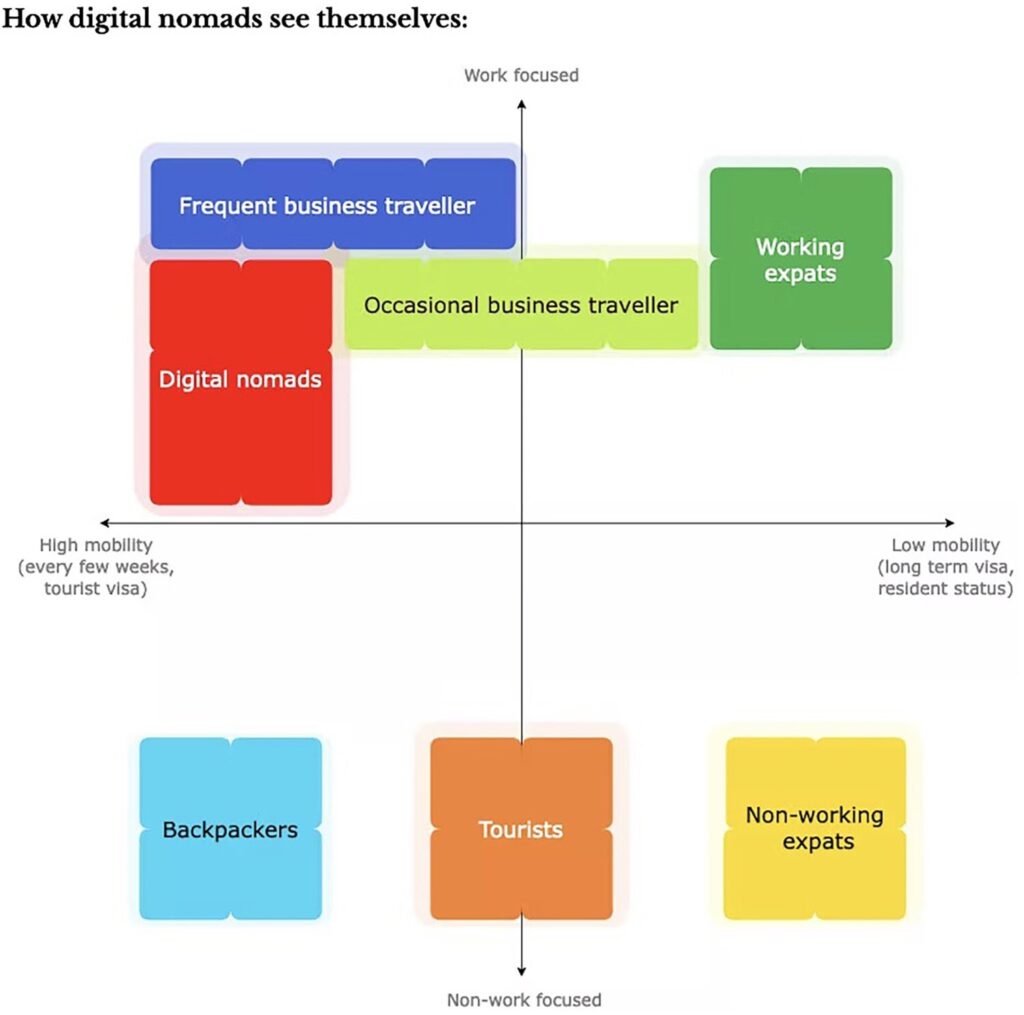[ad_1]
Not all brands want (or for that matter can afford) celebrity endorsements. Yet social media continues to grow as a vital marketing channel.
One recent example includes rail booking platform Trainline getting “The Hoff” onboard; the topic came up during the recent Skift Future of Lodging Forum.
Its relevance isn’t being lost on the extended stay sector, either, with two brands already seeing a level of success.
Blueground, a real estate company that provides extended-stay lodging for stays of a month or longer, has just closed a recruitment campaign to find a “Resident TikTok Creator.”
More than 300 people applied for the role, which Blueground said took it by surprise. Applicant backgrounds included travel nurses and former employees from the likes of Google and Meta, as well as digital nomads. Now it’s sifting through the hundreds of videos submitted.
Digital nomad housing platform Flatio is, meanwhile, launching a “Nomad Inspectors Club.”
Brand Discovery
For both Flatio and Blueground, which recently bought corporate housing specialist Travelers Haven, one of the main benefits is growing its presence among a new untapped audience.
From May 1, Blueground’s resident will spend three months staying across its furnished apartments, documenting her or his experiences. The gig includes a $10,000 per month project fee, and a $7,500 travel stipend to book flights. In return the resident has to become the face of the Blueground TikTok account, and create “engaging, scroll-stopping content” to drive engagement and build brand awareness.
“Our hope and expectation for this role is that the Resident will create content that will bring personality to the brand and humanize the company for those that aren’t as familiar with Blueground,” said Yorgos Kleivokiotis, chief marketing officer. “We understand a successful TikTok account is more than just posting a quick video in a great location, so we’re searching for a creator to define a content strategy and bring a level of authenticity that can’t be reached with one-off partnerships.”
Czech-based Flatio’s initiative involves giving away complimentary stays in return for reviews and nomad-verification of its properties. It’s targeting photographers, travel influencers, high-profile digital nomad influencers and Instagram, TikTok and YouTube stars.
The company is encouraging its existing landlords to come forward to host these nomads and influencers for at least three days in return for reviews, video content and the chance to receive a “Nomad-Verified” badge (if their property meets the needs of digital nomads.)
“The Nomad Inspectors Club program will allow expert digital nomads and influencers the chance to stay in luxury villas, city apartments and rural hideaways essentially for free,” said Ondrej Dufek, Flatio’s co-founder and head of marketing.
Check the Small Print
As these types of marketing campaigns become more commonplace, expect the requirements to get tougher too. In a sea of social media, brands will want to see a return on investment, and remove any risks that could harm their image.
Blueground’s would-be resident will have needed to include credentials such as links to their top social handles and top-performing content so the company can check out their best work and get a feel for the candidate’s content style. They will also have had to prove they’ve got the necessary skills, including a love and understanding of social media trends, video editing skills and a passion for pop culture.
Once in, they’ll be required to create 15 to 20 TikToks per month.
Flatio’s “Nomad inspectors” should have at least 10,000 followers or subscribers on TikTok, Instagram or Youtube or 40,000 monthly readers/listeners on blogs and podcasts.
On the landlord side, properties are required to have remote-work friendly features such as good WiFi, a dedicated workspace, and a spot for workout and meditation inside or outside the rental unit.
Sidenotes
Marketing is all about messaging. Those messages need to hit the right target too, and some may feel the term “digital nomad” is becoming a little too broad.
Step forward one expert from the UK’s University College London, who in a new research paper aims to set the record straight.
David Cook, who is part of the Eworklife taskforce at the university’s Brain Science Faculty, has written an academic paper called “What is a digital nomad? Definition and taxonomy in the era of mainstream remote work.”
It was written in response to concerns the term digital nomad is too loose, and doesn’t describe a clearly understandable set of context, actions, practices and identities.
“As remote working has expanded exponentially, digital nomadism has become subsumed into conversations about the mass adoption of remote work and thus needs a clearer differentiation,” the paper states.
It provides a detailed definition of digital nomadism, and in short says they: use digital technologies to work remotely; have the ability to work and travel simultaneously; have autonomy over frequency and choice of location; and visit at least three locations a year that are not their own or a friend’s or family home.
Two charts in particular jump out. The first is the pre-pandemic model of a digital nomad.

In the second graphic, a whole new set of criteria are included.


Clear definitions not only stand to help travel marketers, but they can also aid policymakers.
The paper is published by the World Leisure Journal.
10-Second Corporate Travel Catch-Up
Who and what Skift has covered over the past week: American Airlines, blended travel, Choice Hotels, Expedia, Hilton, London City Airport, Navan, Oyo, Seera, Southwest Airlines, Travelport.
In Brief
Zoku Debuts Loft-Themed Property in Paris
Hybird hospitality company Zoku has opened a new property in Paris. It’s the first one for France, adding to locations in Amsterdam, Copenhagen and Vienna. Zoku offers private apartment style “lofts” and rooftop social spaces. Its new Paris property is located in the city’s 17th arrondissement, close to the Porte de Clichy metro station.
[ad_2]
Source link

